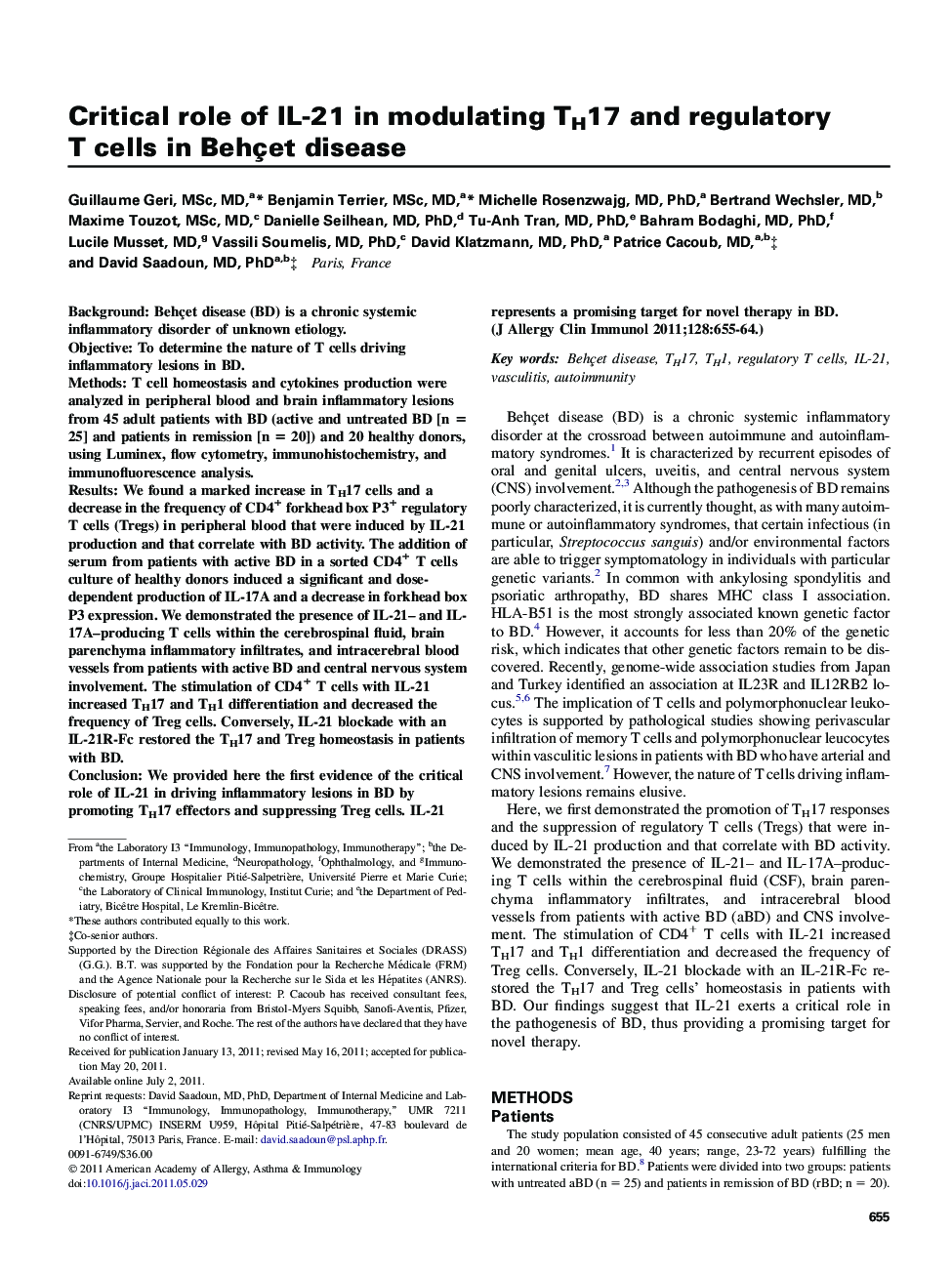| Article ID | Journal | Published Year | Pages | File Type |
|---|---|---|---|---|
| 3198867 | Journal of Allergy and Clinical Immunology | 2011 | 10 Pages |
BackgroundBehçet disease (BD) is a chronic systemic inflammatory disorder of unknown etiology.ObjectiveTo determine the nature of T cells driving inflammatory lesions in BD.MethodsT cell homeostasis and cytokines production were analyzed in peripheral blood and brain inflammatory lesions from 45 adult patients with BD (active and untreated BD [n = 25] and patients in remission [n = 20]) and 20 healthy donors, using Luminex, flow cytometry, immunohistochemistry, and immunofluorescence analysis.ResultsWe found a marked increase in TH17 cells and a decrease in the frequency of CD4+ forkhead box P3+ regulatory T cells (Tregs) in peripheral blood that were induced by IL-21 production and that correlate with BD activity. The addition of serum from patients with active BD in a sorted CD4+ T cells culture of healthy donors induced a significant and dose-dependent production of IL-17A and a decrease in forkhead box P3 expression. We demonstrated the presence of IL-21– and IL-17A–producing T cells within the cerebrospinal fluid, brain parenchyma inflammatory infiltrates, and intracerebral blood vessels from patients with active BD and central nervous system involvement. The stimulation of CD4+ T cells with IL-21 increased TH17 and TH1 differentiation and decreased the frequency of Treg cells. Conversely, IL-21 blockade with an IL-21R-Fc restored the TH17 and Treg homeostasis in patients with BD.ConclusionWe provided here the first evidence of the critical role of IL-21 in driving inflammatory lesions in BD by promoting TH17 effectors and suppressing Treg cells. IL-21 represents a promising target for novel therapy in BD.
